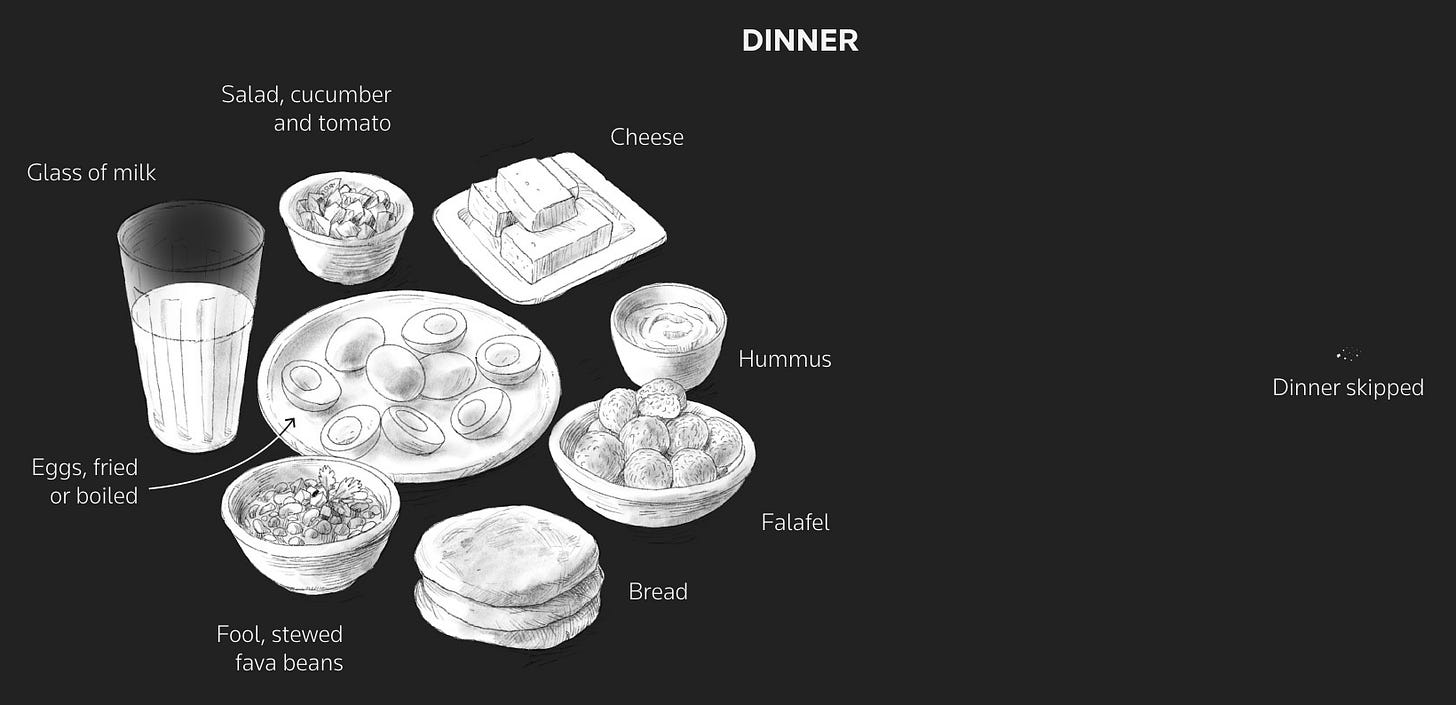Where millions of immigrants to US come from?
Growing up in Gaza, LLM vs You, Humor with Age, etc.
Hola!
I haven’t written a newsletter in over two months, and that’s on me. I’ve been busy revamping my personal blog, which is now completely redesigned. These days, I write more frequently for the blog than for the newsletter. You can subscribe to my blog here and browse the many new posts!
At the end of today’s letter, I have a bonus section for cool links from the internet.
Are you smarter than a LLM?
LLMs have gotten smarter over time. They are certainly more than text generators but are they smarter than you? Do they “know” more than you?
Daniel Erenrich created an online quiz where you can compete against Platypus 2, which used to be the best (not anymore) performing model in MMLU task benchmark, scoring 70.5%. LLM beat me, particularly due to its generalized knowledge about topics ranging from international law, sociology, and more.
Have Fun with Terminal
Terminal has some pesky capabilities. Inspired my geek friend Pablo, who is looking for a job in case anyone of you are hiring, I enumerated my discoveries about Terminal apps in this blogpost. Did you know that in Terminal, you can:
Have a cow do fortune telling for you? 🐮
Watch a choo choo train? 🚂
Watch the entire Star Wars in ASCII characters? ⭐
How Does Our Sense of Humor Change With Age? A Statistical Analysis
Daniel Parris, whose Stat Significant newsletter I highly recommend, studied how our sense of humor changes over time. As infants, we start developing a sense of humor early in our life.
We laugh the most till the age of 23, which is when pressures of work, etc. start taking away our mental peace. Smiles don’t return till we retire, when we start spending more time with our family again. Similarly, aggresive humor peaks at college time while joking about oneself increases with age.
I highly recommend this piece, and his other works as well!
Dataset: Religious Affiliation by Country (1800-2015)
I first found about this dataset when Prime Minister Narendra Modi talked about the growing population proportion of Muslims in India. (The report was laden with misleading statistical statements; who reports percentage change (not difference) in percentage!?)
This dataset manages to pull together religious affiliation of people from various geographic entities over time.
It covers 220 independent states, 26 selected substate entities, and 41 geographically separated dependencies, for every year from 2015 back to 1900 and often 1800 (more than 42,000 state-years). It estimates populations and percentages of adherents of 100 religious denominations including second level subdivisions within Christianity and Islam, along with several complex categories such as "Western Christianity."
In this motivation, it is similar to Maddison Project which compiled world population, GDP and per capita GDP from 1-2008 AD. (Project Idea: Does religion have any effect on economy and population?)
How will your city feel in future?
Pudding.cool is back with another exploration: how will climate change at your city? We are often told that we’re on our way to global temperature increase of 2 degrees Celsius. But that’s the average, right?
This data visualization looks at 70 cities around the world to see how the climate will change with time. Los Angeles in 2070 will become like New Delhi today. Many temperate cities including Tel Aviv, Mexico City, Barcelona, Nairobi, will become arid deserts. Today, Scandinavia, Seoul, New York, Boston, Moscow are all part of “cold” climate. In 2070, there will be only Moscow in this category.
Related pieces:
Are some neighborhoods hotter than others?, Dea Bardhoshi
Changing map of United States, ProPublica and New York Times
Where millions of immigrants to US come from?
In USA, immigration is a heavily polarizing topic. Everyone has opinions, but few actually know the specific data. This Washington Post article looks at court cases about illegal migration. Most migrants come from central and south America but that’s changing since the pandemic.
Read without paywall: https://archive.ph/V0LQR
How Children Starve in Gaza
In this Reuters piece, journalists look at health conditions of growing in Israel-occupied Palestine. More than one million of Gaza’s inhabitants face the most extreme form of malnutrition – classified as ‘Catastrophe or Famine.’
Since the conflict began, the diet for the local civil population has changed significantly. The piece is eye-opening; I’m grateful to live in a country which isn’t at war at present.
Math Fiction: A New Genre of Stories
From the curator, Alex Kasman, Professor of Mathematics at College of Charleston:
Do you like fiction and mathematics? Are you looking for a book or story that might be useful for the students in your math class? Are you interested in what our society thinks about mathematicians? Then you've come to the right place. This database lists over one thousand short stories, plays, novels, films, and comic books containing math or mathematicians.
Here are his recommendations (a much shorter list): https://kasmana.people.charleston.edu/MATHFICT/readinglists.php
Bonus: Links
🦾 A Genealogy of Technology and Power Since 1500
🛹 A Collection of Digital Gardens
Have a great summer!
— Harsh












